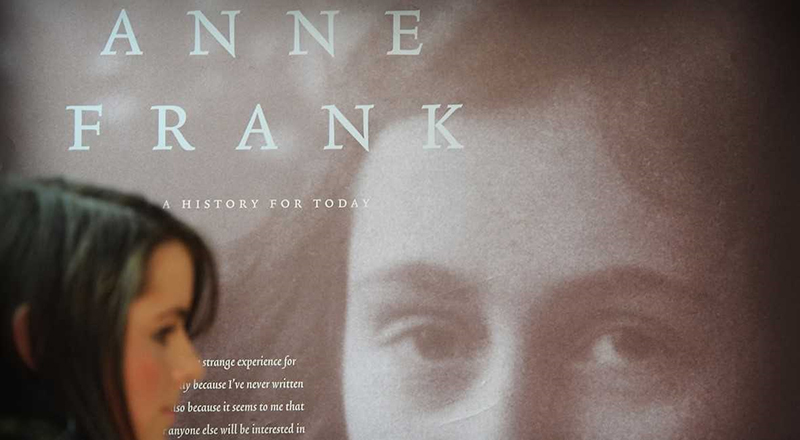Learning from the lessons of history
A thought-provoking exhibition dedicated to the life of the teenage diarist and holocaust victim Anne Frank is being opened to the public later this month.

The Anne Frank: A History for Today exhibition is being hosted by Teesside University and has been brought to Middlesbrough by the Anne Frank Trust UK.
This year marks the 75th anniversary of the liberation of Auschwitz and the 25th anniversary of the Bosnian genocide and as part of the University’s annual commemorations of Holocaust Memorial Day on January 27, the exhibition is being made available to the public.
Throughout January, schools across the Tees Valley and County Durham have been invited to view the exhibition and learn more about Anne's story, from her birth in Frankfurt, Germany in 1929, to her death in Bergen-Belsen at the age of 15.
Approximately 300 students have been given the rare opportunity to experience the History for Today exhibition and gain a greater understanding of the terrible human consequences of persecution and war.
Margaret Hems, a Senior Lecturer in History in the School of Social Sciences, Humanities & Law, said: 'We are very honoured to have been chosen by the Anne Frank trust to host this exhibition in such an important year.
'As the events of the Second World War fade from living memory it is vital that people are educated about the Holocaust in order to prevent a tragedy of this scale happening again.
'We are very pleased that we have been able to introduce so many young people from across the region to the experiences of Anne Frank and allow them an insight into her life.'
Following the outbreak of the Second World War, and the German invasion of the Netherlands, Anne's life changed dramatically, along with millions of other Jews across Nazi-occupied Europe.
Forced to wear a star, marking her as a Jew, she was forbidden from using a bike, tram or bus, from attending school with non-Jewish children, and had to follow a strict curfew.
After her sister Margot received a call up notice to a 'work camp' in Germany, the family went into hiding in a secret annexe of her father's office building. Assisted by four 'helpers', they lived there secretly for over two years before being found by the Gestapo and sent to Auschwitz concentration camp. Of the eight inhabitants in the annexe, only Otto, Anne's father survived.
As part of the Holocaust Memorial Day commemorations, there will be a short ceremony with readings and poems by members of the University community. This will be followed by 100 candles being lit to commemorate the 75th anniversary of the liberation of Auschwitz and the 25th anniversary of the Bosnian genocide. A commemorative tree will then be planted in King Edward’s Square on the University campus.
Emma Davisworth, Coordinating Faith Adviser at the University, said: 'Holocaust Memorial Day remains an important date in the University calendar as it is important to learn and reflect from the lessons of history to enable a greater understanding of the steps that we can take as individuals to prevent the rise of prejudice and discrimination in our own communities.'
* The Anne Frank: A History for Today exhibition is open to the public between 9am and 5pm on January 27th in the Constantine Gallery, located on the ground floor of Middlesbrough Tower on the University campus.
 Supporting Nigerian farmers by transforming food waste into
...
Supporting Nigerian farmers by transforming food waste into
... International partnership signed with prestigious American
...
International partnership signed with prestigious American
... Teesside University academics join prestigious network of
...
Teesside University academics join prestigious network of
...